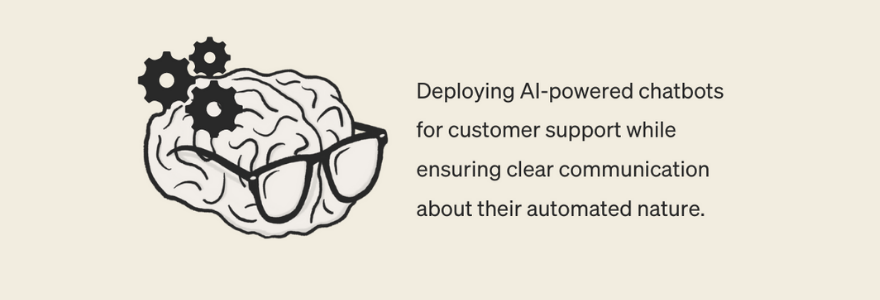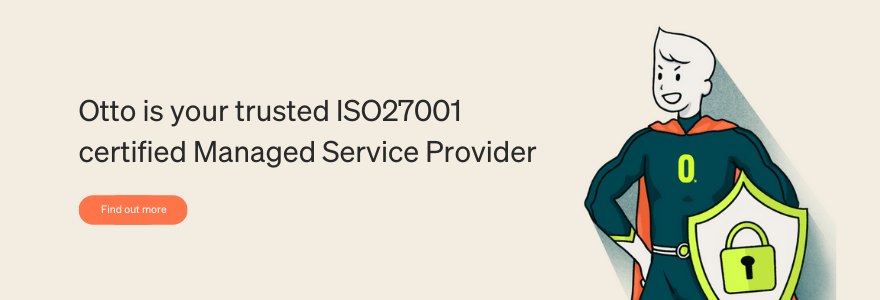As Artificial Intelligence (AI) rapidly permeates workplaces across different sectors, small businesses are increasingly exploring its potential to streamline processes, enhance productivity, and improve customer experiences. However, the adoption of AI comes with inherent challenges, requiring prudent AI governance strategies to ensure responsible and effective implementation. In this article,our business intelligence team will delve into practical examples of AI governance tailored for small businesses in diverse sectors, such as legal firms, accounting firms, educational facilities, medical practices, and more.

Legal firms
AI is revolutionising the legal industry, from contract analysis to predicting case outcomes. For small legal firms, AI governance involves data privacy compliance, ensuring sensitive client information is adequately protected. Implementing algorithms that detect and minimise biases in legal research and decision-making is vital to maintaining ethical standards.
- Practical example: Employing AI-powered legal research platforms that emphasise transparent algorithms to offer unbiased insights and recommendations.
Accounting firms
AI-driven accounting solutions streamline bookkeeping, expense management, and financial analysis. For small accounting firms, AI governance means securing financial data and ensuring AI-powered analytics adhere to industry standards. Additionally, it involves educating staff about AI technologies to maintain data integrity and build trust.
- Practical example: Implementing AI-powered expense tracking systems with strict access controls and periodic AI auditing to verify accuracy.
Schools and educational facilities
AI applications in education encompass personalised learning, intelligent tutoring, and administrative automation. AI governance in educational settings involves protecting student data, considering data ownership rights, and monitoring AI’s impact on learning outcomes and students’ well-being.
- Practical example: Utilising AI-enabled learning platforms that anonymise student data, provide real-time progress reports, and allow for parental consent for data usage.
Medical practices
AI’s potential in medical diagnosis, patient care, and drug discovery is ground-breaking. For small medical practices, AI governance focuses on data security and complying with strict medical regulations. It also necessitates thorough validation of AI algorithms to minimise misdiagnoses and improve patient safety.
- Practical example: Adopting AI-assisted diagnostic tools that maintain patient privacy, integrate seamlessly with Electronic Health Records (EHRs), and undergo rigorous clinical testing.
Retail businesses
AI transforms retail through personalised marketing, inventory management, and customer service automation. AI governance for small retail businesses entails responsible use of customer data, preventing potential discriminatory practices, and maintaining transparent pricing algorithms.
- Practical example: Deploying AI-powered chatbots for customer support while ensuring clear communication about their automated nature.

Manufacturing companies
AI drives automation, predictive maintenance, and quality control in manufacturing. AI governance for small manufacturing companies involves ensuring employee training for working alongside AI, adhering to safety protocols, and preventing algorithmic biases in production processes.
- Practical example: Integrating AI-driven predictive maintenance systems that analyse machinery data to schedule maintenance and minimise downtime.
Restaurants, hotels, and the hospitality industry
AI enhances guest experiences in hotels and restaurants through personalised services and streamlined operations. AI governance here includes protecting guest information, addressing potential biases in AI-driven recommendations, and providing alternatives for guests who prefer human interaction.
- Practical example: Utilising AI-powered chatbots for reservations and inquiries, supplemented by clear communication options for human support.
As small businesses increasingly embrace AI in various sectors, AI governance becomes crucial for safeguarding ethical practices, data privacy, and human well-being. By implementing tailored AI governance strategies for each industry, small businesses can leverage AI’s potential while maintaining transparency, accountability, and fairness. In doing so, they can navigate the AI landscape responsibly and capitalise on the transformative benefits AI brings to the workplace.
Implement ethical AI that helps your people do their best work!
At Otto, an ISO27001 certified MSP in Melbourne, we work with your tech staff and leadership to develop customised roadmaps for your budget and sector, setting you up and supporting you with the best tech to deliver the results that matter most. In addition to creating and deploying AI technologies, we can supplement your tech department or run it ourselves, supply you with vCIO and consulting services, deliver tech support, implement hybrid working solutions, and so much more.




